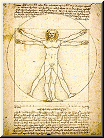Yogesh
Well-Known Member
I would agree with @arj . War is part and parcel of life. All life forms have to compete for resources to survive and reproduce. I don't have any naïve idea about war being unnatural or avoidable.
Life & War are inseparable. Let alone humans, there will be war as long as there are living beings.
Off topic - I believe human intelligence (self awareness or sentience whatever one wants to call it) resulted in emotions. And emotions in turn limited our own intelligence. Emotions rob us of rationality and any ability to think straight and simple. Sometimes they just don't let us see or understand very basic or simple things!
Life & War are inseparable. Let alone humans, there will be war as long as there are living beings.
Hobby, Love etc involve intense emotions. And when emotions are involved, rationality is the first thing to go out of the window.
I would agree with @arj . War is part and parcel of life. All life forms have to compete for resources to survive and reproduce. I don't have any naïve idea about war being unnatural or avoidable.
Life & War are inseparable. Let alone humans, there will be war as long as there are living beings.
Off topic - I believe human intelligence (self awareness or sentience whatever one wants to call it) resulted in emotions. And emotions in turn limited our own intelligence. Emotions rob us of rationality and any ability to think straight and simple. Sometimes they just don't let us see or understand very basic or simple things!


